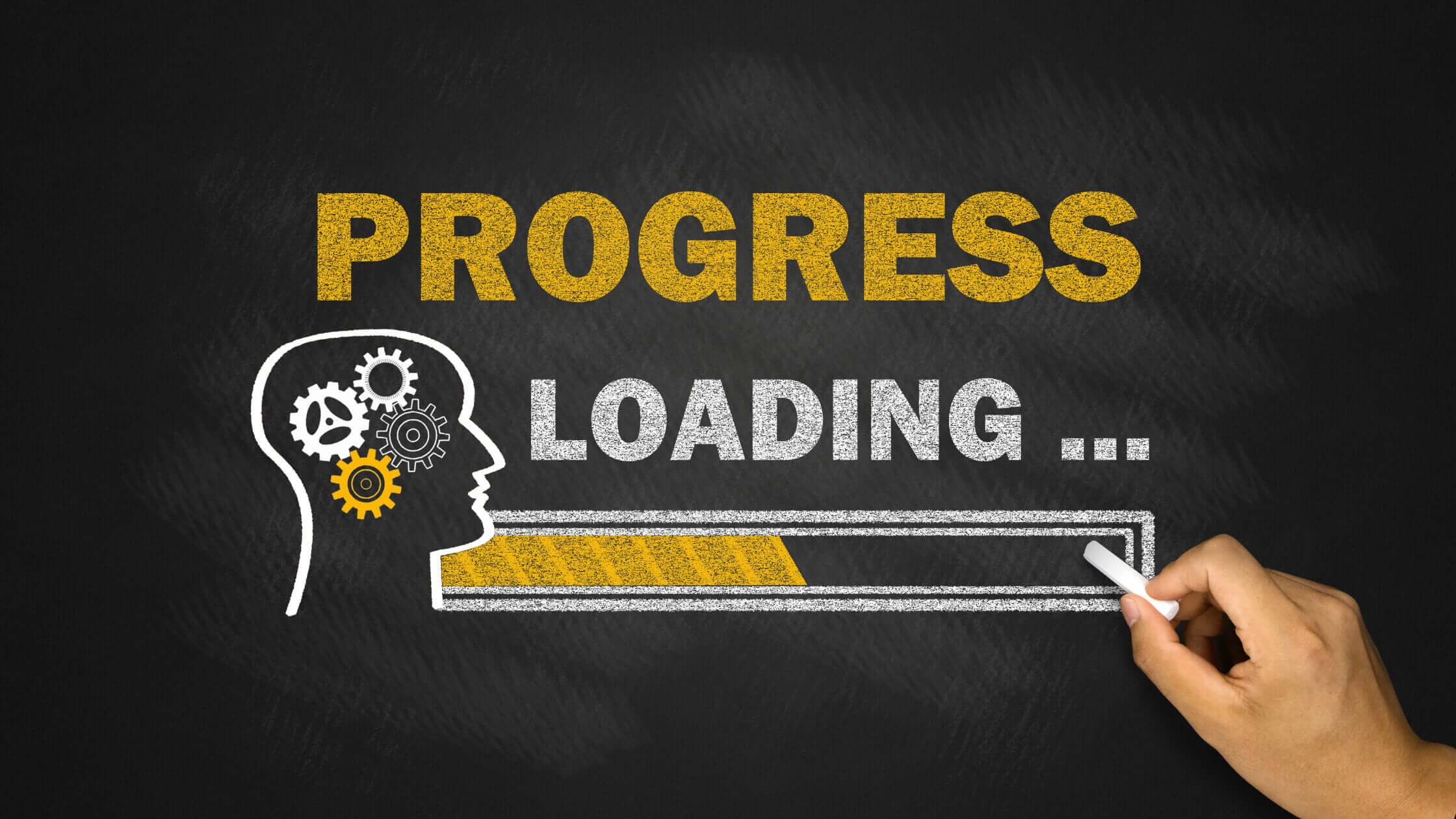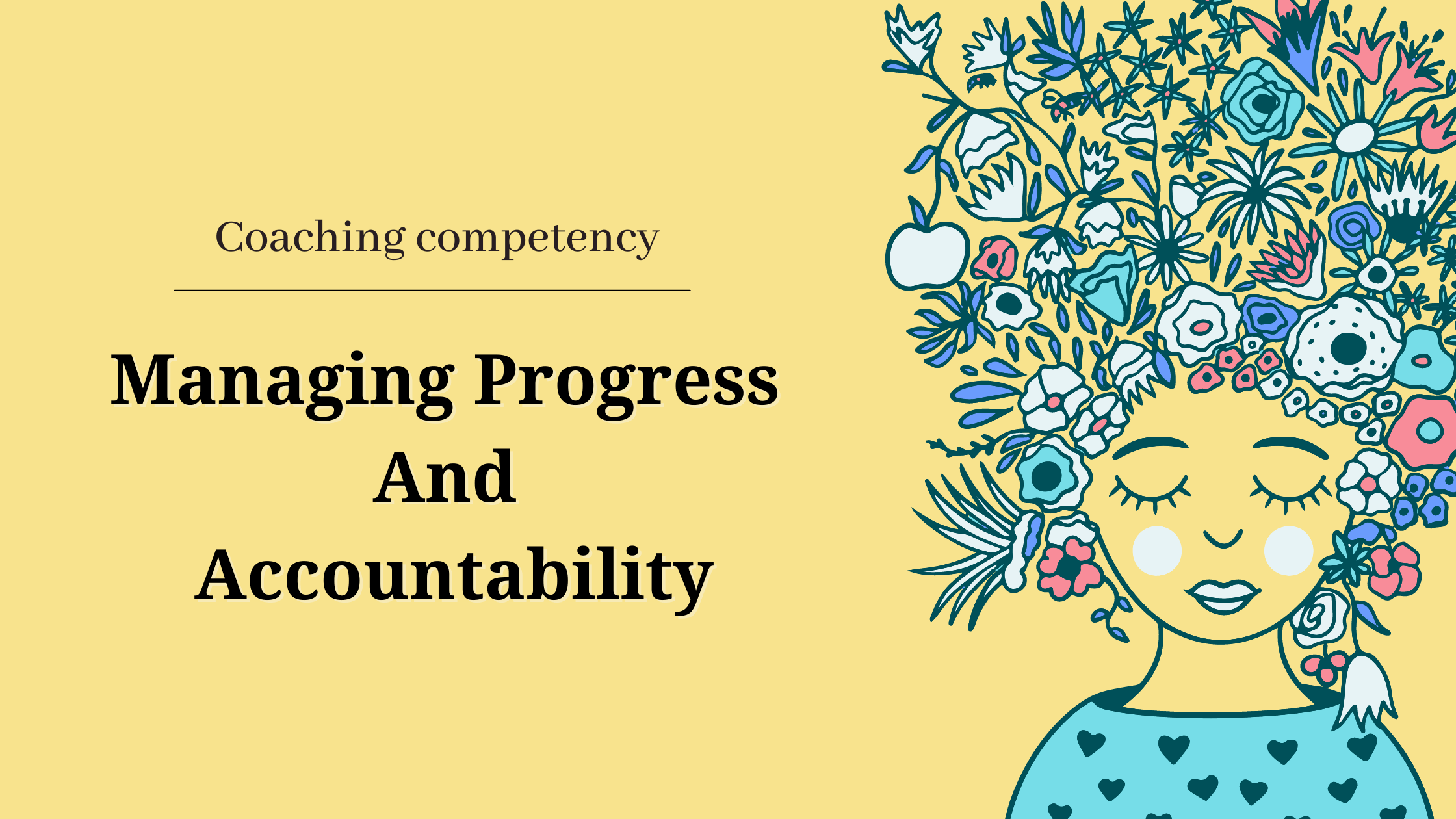As a practicing psychologist or coach, do you often grapple with the complexities of managing client progress and ensuring accountability?
Are you struggling to maintain client engagement and ensure consistent follow-through on therapeutic goals?
These challenges are common in the fields of psychotherapy and coaching, where managing progress and accountability can be as daunting as the therapeutic process itself.
Understanding the Competency of Managing Progress and Accountability
The competency of Managing Progress and Accountability within coaching and therapy is predicated on the belief that for change to be effective and enduring, it must be measurable, observable, and owned by the client.
Mastering this competency involves several key components:

- Goal Setting: Assisting clients in defining clear, attainable, and meaningful goals, which act as benchmarks for progress.
- Action Planning: Collaborating with clients to create actionable steps aligned with their goals, providing a structured roadmap for their journey.
- Monitoring: Implementing methods of tracking progress tailored to individual client needs and preferences, ensuring ongoing motivation and focus.
- Feedback: Utilizing regular check-ins to provide objective feedback that reinforces positive changes and addresses potential setbacks.
- Self-Regulation: Equipping clients with tools and strategies to self-monitor, take corrective actions, and celebrate successes.
- Fostering Ownership: Encouraging clients to take responsibility for their progress, instilling an internal locus of control that is vital for long-term success.
Developing the competency of Managing Progress and Accountability not only leads to more productive sessions but also instills clients with the skills necessary to sustain their progress independently long after the coaching or therapy engagement has concluded.
The Importance of Managing Progress and Accountability
Helping clients manage progress and accountability is crucial for the success of any therapeutic or coaching relationship. It ensures that clients remain motivated, focused, and committed to their goals.
Moreover, it allows therapists and coaches to evaluate the effectiveness of interventions and make necessary adjustments. Without a structured approach to track progress, clients can easily lose direction, leading to stagnation and decreased therapeutic efficacy.

Integrating Cognitive Hypnotic Coaching and Psychotherapy
Cognitive Hypnotic Coaching and Psychotherapy (CHCP) offers a comprehensive and eclectic approach that integrates elements from various therapeutic disciplines, including Cognitive Behavioural Therapy (CBT), Neuro-Linguistic Programming (NLP), and traditional hypnosis. This integration provides a versatile toolkit for addressing a wide range of client issues while maintaining a focus on progress and accountability.
Empirical Evidence Supporting CHCP
Research has demonstrated the effectiveness of integrating CBT, NLP, and hypnosis in therapeutic settings. For instance, a study published in the Journal of Clinical Psychology found that combining CBT and hypnosis significantly improved treatment outcomes for patients with anxiety disorders compared to CBT alone (Kirsch, I., Montgomery, G., & Sapirstein, G., 1995).
Another study highlighted the efficacy of NLP techniques in reducing symptoms of post-traumatic stress disorder (PTSD) (Gray, R. M., 2011). These findings underscore the potential benefits of an integrated approach like CHCP in enhancing client progress and accountability.
SOFT SEA Coaching Framework
The SOFT SEA Coaching Framework is a structured approach that combines various psychological principles and techniques to facilitate change. This framework addresses the client’s:
- Situation: Understanding the current state.
- Outcome: Defining desired goals.
- Future: Visualizing the future post-achievement.
- Tasks and Triggers: Identifying actionable steps and potential triggers.
- Hindrances: Recognizing barriers such as thoughts, emotions, beliefs, values, positive intentions, and past experiences.
- Effective Change: Implementing strategies for change.
- Suggestion or Summary: Offering suggestions and summarizing progress.
- Evaluation and Assignments: Continuously evaluating progress and assigning tasks.
By systematically covering these areas, coaches can create a comprehensive understanding of the client’s current state and desired goals, ensuring clear and measurable progress in managing progress and accountability.
Techniques for Breaking Negative Cycles
One significant challenge in therapy is helping clients break free from repetitive negative cycles. The Breakdown Cycle technique in CHCP identifies patterns of negative behaviour or thought processes that lead to unwanted outcomes. By recognizing and disrupting these cycles, therapists can help clients move towards positive change, enhancing their progress and accountability.
Enhancing Emotional and Mental States

Techniques like Anchoring and the SWISH Pattern are invaluable in helping clients manage their emotional and mental states.
Anchoring, an NLP technique, associates a specific physical stimulus with a desired emotional state, enabling clients to trigger resourceful states on demand.
The SWISH Pattern uses visualization exercises to disrupt negative thought patterns and replace them with empowering images, fostering new, positive behaviours.
Deep Self-Reflection and Insight
Techniques like Abstract Metaphor and Introspection Metaphor encourage deep self-reflection and insight by utilizing symbolic language and storytelling.
These techniques bypass resistance and allow clients to explore their inner experiences, facilitating personal insight and self-awareness about their thoughts and behaviours, which is essential in managing progress and accountability.
Tracking and Adjusting Progress
Effective progress tracking and accountability require continuous evaluation and adjustment. The Meta Model, a set of NLP questions designed to clarify vague language and uncover underlying beliefs, helps in challenging limiting beliefs and expanding possibilities. This tool is particularly useful for maintaining clarity and direction in the therapeutic process.
Addressing Internal Conflicts
Parts Integration is an NLP method used to resolve internal conflicts where different ‘parts’ of the self are at odds.
This technique is crucial for clients experiencing ambivalence or struggling with decisions, as it creates harmony within the individual by integrating conflicting parts, aiding in managing progress and accountability.
Transformative Techniques
For deeper, more transformative work, techniques like Hypnotic Regression Therapy and Inner Child Healing are essential.
Hypnotic Regression Therapy guides clients back to past events under hypnosis to uncover root causes of current issues, while Inner Child Healing addresses unresolved childhood experiences that affect present behaviour and emotional well-being, crucial for managing progress and accountability.
Applying “Managing Progress and Accountability” in Your Practice

Applying the competency of Managing Progress and Accountability in therapy and coaching is a dynamic process that requires both structure and flexibility. Here’s how it can be effectively integrated into practice:
- Establish Clear Metrics: Set clear and measurable markers with clients at the outset to track achievement and celebrate milestones.
- Develop Action Steps: Break down larger goals into actionable steps, creating a structured plan that clients can follow and adjust as needed.
- Encourage Consistent Self-Evaluation: Promote routine self-evaluation, guiding clients to reflect on their actions, progress, and the lessons learned along their journey.
- Use Tools and Resources: Implement the use of tools like progress logs, mobile apps, or digital platforms that facilitate easy tracking of actions and progress.
- Facilitate Regular Review Sessions: Schedule regular review sessions to evaluate achievements, discuss adjustments, and recommit to the goals set.
- Cultivate a Growth Mindset: Help clients adopt a growth mindset, appreciating the learning involved in the process and not just the endpoint.
- Instill Ownership: Empower clients to take full ownership of their change process, helping them understand that they are the drivers of their transformation.
Incorporating these elements into your practice can ensure clients remain motivated and accountable, leading to more effective outcomes and a greater sense of personal accomplishment.
Overcoming Roadblocks to Mastery
When fostering progress and accountability with clients, therapists and coaches may encounter a range of challenges that can impede the process. It is vital to identify these obstacles and develop strategies to effectively navigate them:
- Resistance to Change: Some clients may show resistance to taking the necessary steps toward their goals, often due to fear or discomfort.
- Solution: Utilize motivational interviewing techniques to explore the client’s ambivalence about change and reinforce their autonomy and competence.
- Inconsistent Follow-through: Clients may struggle with consistently adhering to action plans and maintaining progress towards their goals.
- Solution: Work with clients to identify barriers to follow-through, develop contingency plans, and create a support system to enhance accountability.
- Overwhelm with Goals: Setting overly ambitious goals can lead to client overwhelm and stagnation.
- Solution: Help clients break down goals into smaller, manageable tasks and emphasize the importance of taking incremental steps.
- Tracking Difficulties: Clients may find it challenging to keep track of their progress, which can affect their motivation.
- Solution: Introduce simple, user-friendly tools for tracking and make regular progress reviews a part of each session.
- Fluctuating Motivation: Motivation can naturally ebb and flow over time, impacting the pursuit of goals.
- Solution: Discuss ways to reignite motivation, such as revisiting the reasons behind the goals or adjusting the goals to better align with the client’s values.
By preparing for and mastering these challenges, practitioners can guide clients more effectively toward lasting change and ensure that the pursuit of managing progress and accountability is a shared and rewarding experience.
Ethical Considerations
Maintaining ethical standards is paramount in any therapeutic or coaching practice. Practitioners must:
- Ensure Confidentiality: Protect client information and privacy at all times.
- Maintain Professional Boundaries: Avoid dual relationships and ensure a clear professional boundary is maintained.
- Practice Informed Consent: Ensure clients are fully informed about the techniques and processes used and have given their consent.
- Address Ethical Dilemmas: Develop strategies to handle potential ethical dilemmas, such as conflicts of interest or situations where client welfare may be at risk.
Conclusion
The competency of Managing Progress and Accountability is a linchpin in the partnership between practitioners and clients. It transforms aspirations into tangible results, empowering clients to take measured steps toward their personal growth and behavioural change. This competency does not stand alone – it requires continuous cultivation, commitment to ethical practice, and adaptability as clients evolve.
By implementing structured but flexible methods, leveraging progress tracking tools, and aligning goals with a client’s intrinsic motivations, coaches and therapists ensure that clients not only stay the course but also internalize their victories.
The journey is one of shared triumph and transformation, where every milestone is a testament to the client’s agency and the effectiveness of the therapeutic alliance.
Join us in exploring the transformative realm of the Cognitive Hypnotic Coaching Practitioners Course. This course is designed for coaches, trainers, and HR professionals who wish to enhance their competencies.
For psychologists, social workers, and medical practitioners, the Cognitive Hypnotic Psychotherapy Diploma offers specialized training to integrate these powerful techniques into your practice.
Through engaging discussions, practical exercises, and insights from seasoned practitioners, you’ll gain the expertise needed to guide clients towards meaningful change. Embark on this journey of growth, empowerment, and lasting transformation with us today.

